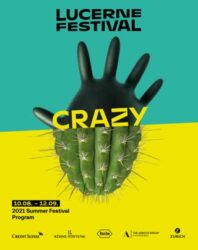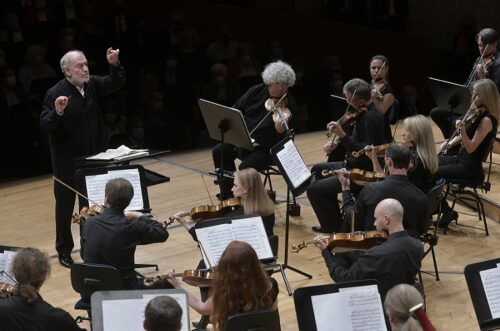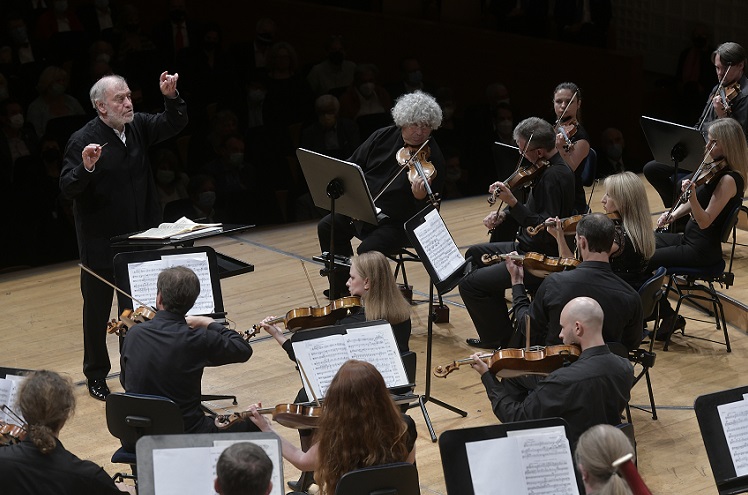
 Switzerland Lucerne Summer Festival [3] – Borodin, Rimsky-Korsakov, Tchaikovsky: Mariinsky Orchestra / Valery Gergiev (conductor). Kultur- und Kongresszentrum Lucerne (KKL) 29.8.2021. (JR)
Switzerland Lucerne Summer Festival [3] – Borodin, Rimsky-Korsakov, Tchaikovsky: Mariinsky Orchestra / Valery Gergiev (conductor). Kultur- und Kongresszentrum Lucerne (KKL) 29.8.2021. (JR)

Borodin – Symphony No.2, Op.5
Rimsky-Korsakov – Suite from The Tale of Tsar Saltan, Op.57
Tchaikovsky – Symphony No.2, Op.17 (Little Russian)
It is always a treat to hear a Russian orchestra, with a Russian conductor, perform Russian works; the sound is simply right, with idiomatic Russian warmth, and the music is audibly in the players’ blood. However, in this concert, I felt that the works were of varying quality.
Borodin’s Second Symphony is regarded as his best orchestral work and some regard it highly, as underrated and underplayed. Others say that if there is a work which is underplayed, there are good reasons for it. Decades ago it was apparently popular in the West, but not any more. My own view on Borodin’s Second, for what it is worth, is that while there are some very beautiful passages, especially in the slow movement, this is a rather blunt instrument. It does not tempt me to discover more Borodin. The players gave their all to the piece, but too many passages were mediocre, even crude. Gergiev has recorded all the symphonies with the Rotterdam Philharmonic Orchestra and knows the work inside out, but that did not really help. The opening movement, depicting a gathering of Russian warrior-heroes, employs fanfares and percussion to good effect but otherwise comes over as brash with rather too grandiose rhetoric. There was some fine playing from one of the principal horns in the slow movement, with delightfully Russian sound; the sparkling harp is supposed to depict the legendary minstrel Bayan. I found the Scherzo indifferent, not at all jocular and the final Allegro jolly with constant use of tambourine, depicting a scene of heroes feasting. It is difficult to take the music seriously, and all falls fairly flat; perhaps that’s why Borodin did not give up his day job as chemistry professor.
Quality went up a gear with Rimsky-Korsakov. The full title of Rimsky’s opera is, wait for it: The Tale of Tsar Saltan, of His Son the Renowned and Mighty Bogatyr Prince Gvidon Saltanovich, and of the Beautiful Princess-Swan. The only notable thing I can tell you about the opera is that in September 1911, while he was attending a performance of the opera in Kiev and in the presence of the Tsar and his family, the Russian Prime Minister Pyotr Stolypin was shot dead. As expected, the piece was very pictorial, with brass fanfares and lots of percussion, all quite rousing. The final of the three movements was very fine. Rimsky’s powers of orchestration and melody were several notches above those of Borodin.
Both the Borodin and Rimsky-Korsakov works paled when followed by Tchaikovsky’s Second Symphony, which is full of charm and sparkle. The symphony contains a number of quotes from the composer’s earlier works, and many folk and dance tunes. It is full of youthful abandon. The name Little Russian stems from the fact that many of the folk tunes used are from the Ukraine, which in Tchaikovsky’s time was known as ‘Little Russia’.
The symphony has a link to both Borodin and Rimsky: Tchaikovsky played the symphony on the piano to a group of eminent Russian composers calling themselves ‘The Five’ (Borodin, Rimsky-Korsakov, Balakirev, Mussorgsky and Cui) who were much taken by it. There is plenty of wit and verve in the score, and none of the brooding melancholy that pervades his later works.
I must highlight some of the fine principal players. The young horn principal has a fine career ahead of him and deservedly was the first to be picked out by Gergiev at the end, the woodwind was splendid and the almost legendary Romanian Leader, with his amazing name (Lorenz Nasturica-Herschcowici) and physical presence, gave body and depth to the entire, very impressive string section.
Gergiev was a model of constant attention, although I would have found his downbeat difficult to follow; there is a lot of incomprehensible trembling of the left hand. I suspect though that these players can play this music blindfolded.
The wonderful acoustics of Lucerne’s Kultur- und Kongresszentrum aided enjoyment of what came over as a minor masterpiece. I just had to take my mask off at the end to add to the roars of approval.
John Rhodes
